Listen to the episode here![]()
I was diagnosed with PCOS (polycystic ovarian syndrome) about two years ago. Truth be told, I lacked a complete understanding of PCOS and how to manage it.
So I shared it on Instagram with my audience, trying to hear from anybody else who had experienced anything like that. That was when two things became abundantly clear to me.
The first – I noticed that way more people than I ever expected had PCOS.
Second – a lot of you shared my confusion in terms of what PCOS means for our lifestyle.
That’s why I’m so excited to speak with Tallene Hacatoryan from PCOS Weight Loss. In this episode, we’re discussing all things hormonal, specifically understanding PCOS and how to manage it.
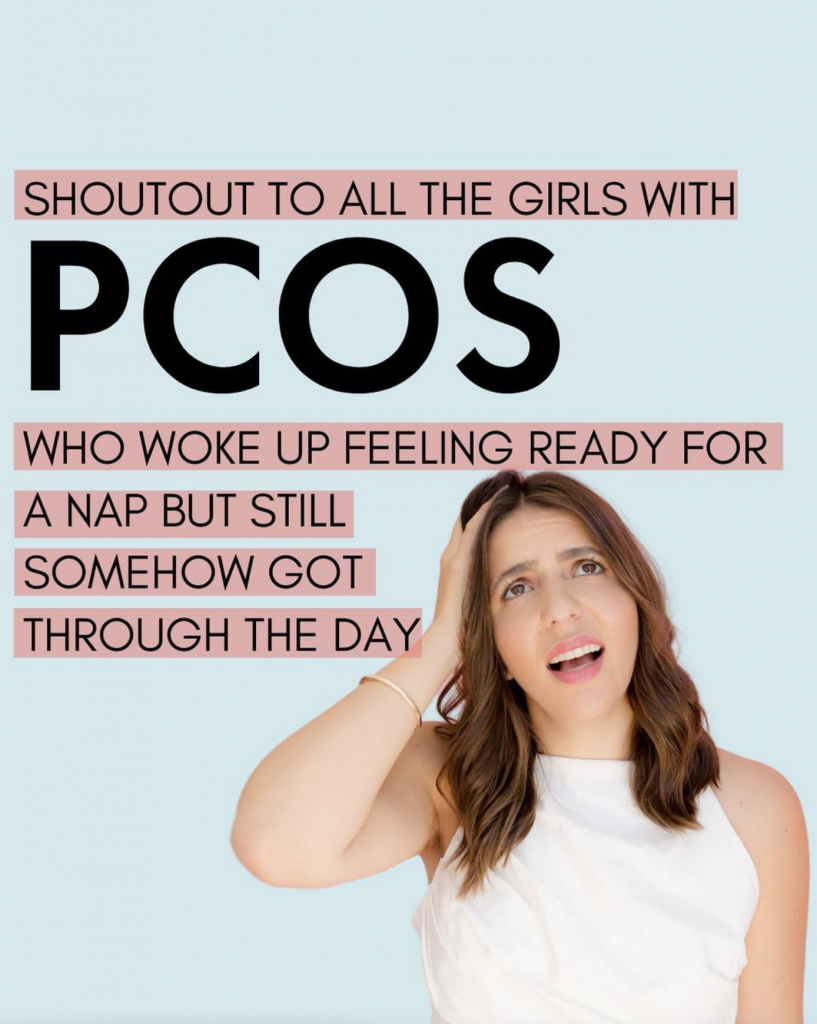
Understanding PCOS and How to Manage It with Tallene Hacatoryan
Tallene is a registered dietitian who was diagnosed with PCOS at the age of 18. She was left really scared and confused by all of the conflicting information that is out there.
If you’ve been diagnosed with PCOS, you probably know that the typical response from an OBGYN is to shove birth control pills at you. Tallene was incredibly disheartened after having that experience herself since birth control only masks the problem at hand.
So she studied nutritional science, became a dietitian, and gathered information from her studies by speaking with various health experts. Tallene has since developed a program, social media presence, and podcast that are all focused on making living with PCOS easier to understand.
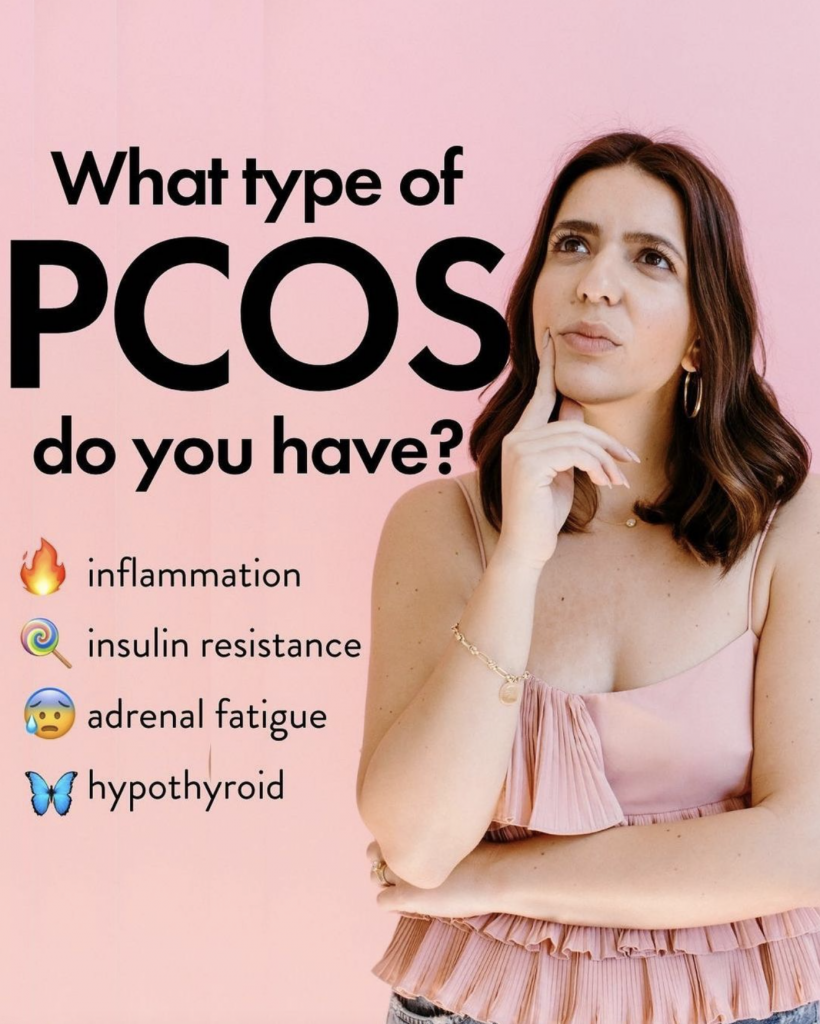
What is PCOS?
PCOS, also known as polycystic ovarian syndrome, is a condition that is diagnosed if you have 2 out of 3 of the following symptoms:
- Ovarian cysts
- Irregular periods
- Hyperandrogenism
Tallene says that “what happens with PCOS is it really comes from root issues like inflammation, insulin resistance, hypothyroid, and adrenal issues.”
Although those are the 4 main root issues beneath PCOS, all women with PCOS have chronic inflammation. This could be in the form of their environment (genetics), the food they’re eating, or the way they’re living their life.
“Inflammation is really the driver of all of our symptoms.”
Next, there’s insulin resistance. “That’s when we have blood sugar issues.” Making it easier for us to gain weight, even if we’re cutting calories.
“If you have insulin resistance, it’s so hard to lose weight without managing that insulin resistance. So then the weight gain kicks in.”
Then there are adrenal issues. “That’s where you have stress hormone dysregulation. And you’re over-exercising because you want to lose weight. But that’s pumping these stress hormones, and that’s triggering anxiety, fatigue, not being able to sleep at night, and restlessness.”
Finally, there’s hypothyroid. “That’s when the hair loss, depression, anxiety all manifest because of your thyroid. Which controls your metabolism that isn’t working properly.”
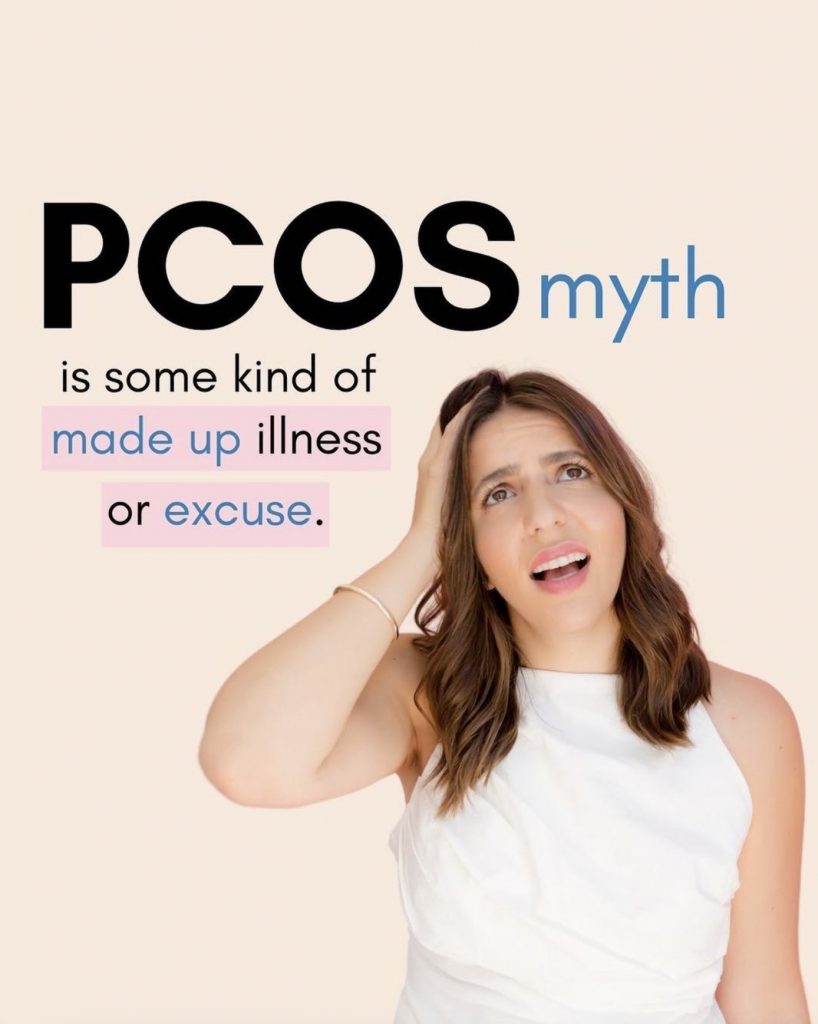
The Consequences of Not Managing PCOS
Personally speaking, I’ve had irregular periods and ovarian cysts. But I haven’t experienced other symptoms such as extra body hair and difficulting maintaining weight.
That was when I first came across the term “lean PCOS”.
And like many women, I was prescribed birth control to help manage my PCOS. But like many women, I’m still on birth control because I’m afraid to deal with my PCOS head-on.
“The consequences of just not doing much,” according to Tallene, “is the same as if you were overweight, or if you had hyperandrogenism.”
“You can have lean PCOS. And you can still have insulin resistance. Maybe you don’t gain weight. But that doesn’t mean that you don’t have fatty liver where the fat gathers around your liver and your liver becomes sluggish.”
PCOS could change and develop later down the line when it is left unmanaged and untreated. But the longer you leave it unmanaged, the more things could get out of control later on.
That isn’t to say that taking birth control is the end all be all of managing PCOS. “Even though you’re on birth control, that doesn’t mean that you shouldn’t still do a bunch of things to help with your diet and lifestyle.”
One thing Tallene suggested that is incredibly beneficial to understanding your PCOS and how to manage it is to see a naturopathic doctor.
“Rather than shoving pills at you, they’ll tell you your PCOS type and where your adrenal and stress hormones are.”
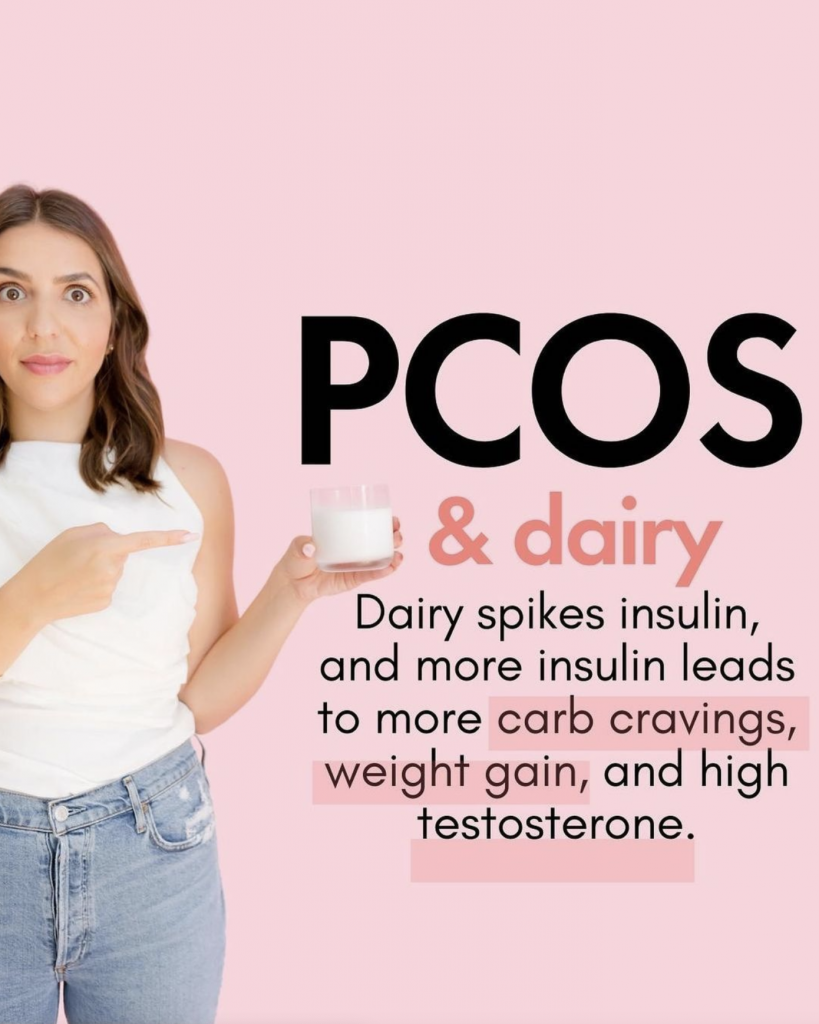
How Diet Can Help You Manage the Symptoms of PCOS
One of the ways I’ve managed my PCOS symptoms is through having a gluten-free and (mostly) dairy-free diet. Since one of the main root causes of PCOS is inflammation, making changes to your diet can help manage your symptoms.
“Before you try anything else, try going gluten and dairy-free for 30 days to see what it does to you. Does it help with your bloating? Your mood. How about your skin? Is it clearing up? Are you losing a couple of pounds? Finally, look at what is happening. Is it helping you because if that’s the case, then continue with it.”
Tallene suggests going gluten and dairy-free to be a great place to start. And if it works for you, you can start to layer all the other PCOS management techniques such as intermittent fasting and lowering your carb intake on top of your diet. But always start with eliminating gluten and dairy.
“If you’re eating those inflammatory foods and you’re doing all these other things, you’re driving the inflammation at the same time. It’s going to be counterproductive. And you’re not going to get where you want to be.”
Gluten and dairy will just fuel the fire, especially if you’re consuming them 3 times a day.
Another aspect of your diet that you can control is your blood sugar.
“When insulin triggers high testosterone in your ovaries, what happens is you’ll miss your period. You won’t ovulate and then ovarian cysts start to develop and it’s this bigger issue. And then fertility issues happen, right? So it all starts with blood sugar control.”

Understanding How Exercise Affects PCOS
Diet and exercise seem to always go hand in hand. When it comes to managing PCOS, I’ve always heard that sticking to a low-intensity workout is the best thing to do.
Tallene’s husband is a PCOS personal trainer and he introduced her to slow-weighted workouts.
“You feel like you meditate afterward, because you’re not pumping your stress hormones. And that is often an issue with women with PCOS.”
If your stress hormones are out of control, it can create a lot of symptoms.
Something as intense as an hour-long kickboxing class “can trigger the stress hormone issue and the blood sugar issue and then you don’t lose weight.”
“Because if you have stress hormones that are out of control, you gain weight in the midsection. If you have blood sugar issues, your metabolism isn’t working properly, you gain weight in the midsection. So at the end of the day, you’re wasting time and energy and money at the boot camp.”
The slow-weighted method allows you to work with your body and honor your PCOS as opposed to forcing yourself into an intense workout that wouldn’t work for you.
However, another great tip for working out with PCOS is to align your workouts with your cycle.
“You could definitely do it based on your cycle, where you’re at what you feel like. In certain phases of your cycle, you have more energy and maybe you want to take a dance class. And then other phases, you’d rather do yoga.”
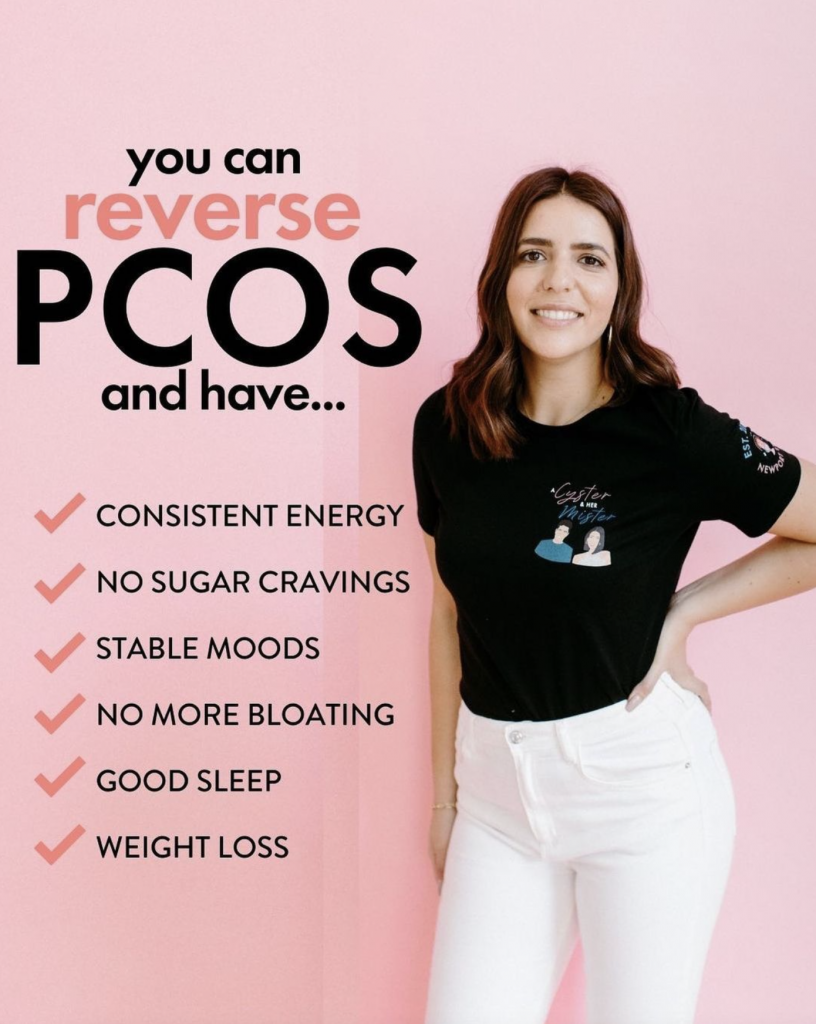
Understanding PCOS and How to Manage it with Diet and Exercise
As you can tell from Tallene’s approach to exercise and managing PCOS, it’s all about balance. That goes for your diet as well.
“If you feel restricted, and maybe you’re doing continuous glucose monitoring, you’re counting your carbs and obsessing over it, that’s definitely taking away from the words thriving with PCOS. Because now you’re obsessing with PCOS.”
Whether you’ve been diagnosed with PCOS or if you suffer from similar PCOS symptoms, Tallene shares a ton of helpful and practical advice about managing PCOS and your symptoms.
The best part? Her approach is well-rounded and non-restrictive. So if you’re ready to feel better, start with understanding PCOS and how to manage it by tuning in to this episode below!
A glance at what we discuss:
- What inspired Tallene to turn her knowledge into a business (4:14)
- What are the consequences of not treating PCOS (7:56)
- Why going gluten-free and dairy-free can help you manage the symptoms of PCOS (11:24)
- Should your exercise routine change because of PCOS (16:08)
- Finding balance between diet, exercise, and PCOS (19:48)
- Can intermittent fasting help with PCOS (22:38)
- How Tallene manages her Instagram (28:40)
- Rapid-fire round with Tallene (31:39)
DROP SOME LOVE IN ITUNES:
If you enjoyed this episode, go ahead and hit SUBSCRIBE. There is a new episode every Wednesday and I would hate for you to miss a thing. Click here to subscribe on iTunes.AND if you are feeling extra generous, take a few seconds to leave Her Life By Design a review on Apple Podcasts. Or post a screenshot on your Stories with some feedback. Hearing what you think about this episode and the podcast as a whole means the WORLD to me. After all, this is all for you. More reviews = more listeners = better guests & content. So all you gotta do is click here to review, click “Ratings and Reviews” and “Write a Review.” I’ll love you forever!
Resources:
- Tallene’s Instagram: https://www.instagram.com/pcos.weightloss/



+ show Comments
- Hide Comments
add a comment